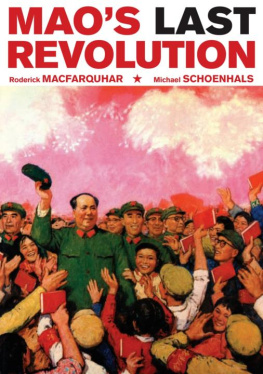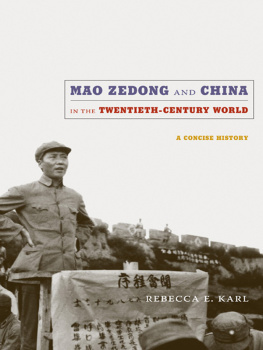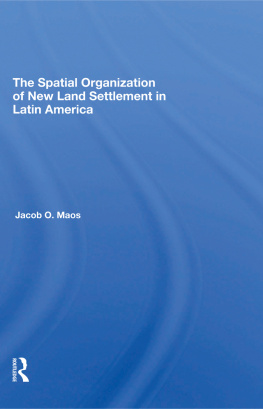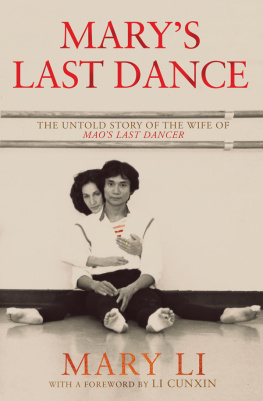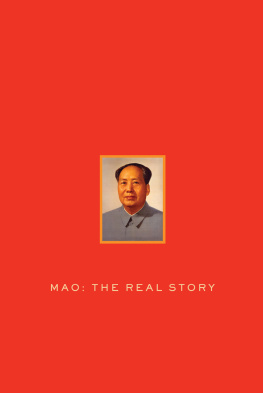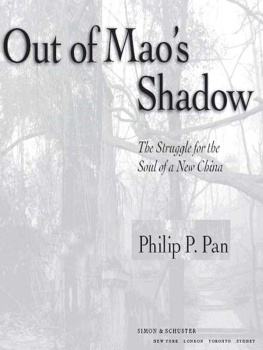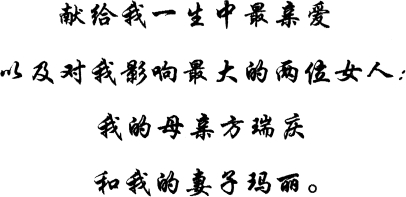M AOS
L AST
D ANCER
L I C UNXIN
VIKING
an imprint of
PENGUIN BOOKS
VIKING
Published by the Penguin Group
Penguin Group (Australia)
250 Camberwell Road, Camberwell, Victoria 3124, Australia
(a division of Pearson Australia Group Pty Ltd)
Penguin Group (USA) Inc.
375 Hudson Street, New York, New York 10014, USA
Penguin Group (Canada)
90 Eglinton Avenue East, Suite 700, Toronto, ON M4P 2Y3 Canada
(a division of Pearson Penguin Canada Inc.)
Penguin Books Ltd
80 Strand, London WC2R 0RL England
Penguin Ireland
25 St Stephens Green, Dublin 2, Ireland
(a division of Penguin Books Ltd)
Penguin Books India Pvt Ltd
11 Community Centre, Panchsheel Park, New Delhi - 110 017, India
Penguin Group (NZ)
67 Apollo Drive, Rosedale, North Shore 0632, New Zealand
(a division of Pearson New Zealand Ltd)
Penguin Books (South Africa) (Pty) Ltd
24 Sturdee Avenue, Rosebank, Johannesburg 2196, South Africa
Penguin Books Ltd
Registered Offices: 80 Strand, London, WC2R 0RL, England
First published by Penguin Books Australia, a division of Pearson Australia Group Pty Ltd, 2003
Text copyright Li Cunxin, 2003
The moral right of the author has been asserted.
All rights reserved. Without limiting the rights under copyright reserved above, no part of this publication may be reproduced, stored in or introduced into a retrieval system, or transmitted, in any form or by any means (electronic, mechanical, photocopying, recording or otherwise), without the prior written permission of both the copyright owner and the above publisher of this book.
ISBN: 978-1-74-228212-1
This project has been assisted by the Commonwealth Government through the Australia Council, its arts funding and advisory body.
www.penguin.com.au
Quotations on pages are from the songs I Love Beijing Tiananmen and We Love Chairman Mao (authors own translation).
M AOS L AST D ANCER
L I C UNXIN was born in 1961, in the New Village, Li Commune, near the city of Qingdao on the coast of north-east China. The sixth of seven sons in a poor rural family, Lis peasant life in Chairman Maos communist China changed dramatically when, at the age of eleven, he was chosen by Madame Maos cultural advisers to become a student at the Beijing Dance Academy. After a summer school in America, for which he was one of only two students chosen, he defected to the West and became a principal dancer for the Houston Ballet.
Li went on to become one of the best male dancers in the world
This is my story. Here is my recollection of those years growing up in Maos China. It is my familys history. It is my journey, from my earliest memories, through discovering dance, to my life in the West. History may record things differently, others may too, but the stories here remain as true to me now as they ever were. It is a remembrance that contains the treasures from my heart.
A beautiful book, where cherished memories are brilliantly preserved, capturing a life with all its exhilaration and beauty.
J EFF M C M ULLEN , FORMER REPORTER 60 MINUTES
A sensationfrom the moment I opened this book I could not put it down. Anyone who has a burning desire to reach great heights should read this book.
L EANNE B ENJAMIN , PRINCIPAL DANCER , R OYAL B ALLET
An honest and refreshing account.
A DELINE Y EN M AH , AUTHOR OF F ALLING L EAVES
To the two special women in my life my mother and my wife
A W EDDING
Q INGDAO , 1946
O n the day of her marriage, a young girl sits alone in her village home. It is autumn, a beautiful October morning. The country air is cool but fresh.
The young girl hears happy music approaching her house. She is only eighteen, and she is nervous, frightened. She knows that many marriage introducers simply take money and tell lies. Some women from her village marry men who dont have all their functional body parts. Those women have to spend the rest of their lives looking after their husbands. Wife beating is common. Divorce is out of the question. Divorced women are humiliated, despised, suffering worse than an animals fate. She knows some women hang themselves instead and she prays this is not going to be her fate.
She prays to a kind and merciful god that her future husband will have two legs, two arms, two eyes and two ears. She prays that his body parts are normal and functional. She worries that he will not be kind-hearted and will not like her. But most of all she worries about her unbound feet. Bound feet are still in fashion. Little girls as young as five or six have to tuck four toes under the big toe and squeeze them hard to stop the growth. It is extremely painful, and the girls have to change the cloth bandages and wash their feet daily to avoid infection. The tighter the feet are bound the smaller the feet will become. Eventually all five toes grow together. Infections often occur and the girls are so crippled they have to walk mostly on their heels. But when this bride was about eight and her mother tried to bind her feet, two or three years later than was usual, she defied her and ran away. Her mother eventually gave up, but secretly she was pleased. A daughter with unbound feet could help do the hard chores. But would her future husband and in-laws think the same?
The groom is a young man of twenty-one. He leaves home before sunrise. Sixteen strong men are hired to carry two sedan chairs for the three-hour journey from his village to the brides. There are trumpets, cymbals, gongs and bamboo flutes, and the brides sedan chair is covered with red and pink silk banners and flowers. The grooms is a simple blue sedan chair, which will leave from the east side of the village and re-enter from the west.
As soon as the grooms entourage leaves home, the women of his family start to prepare the house and the wedding feast to follow. They glue coloured paper cuttings all over the walls, doors and windows - different shapes, with lucky words on them, to symbolise happiness and good fortune. They place a square table in the centre of their courtyard and cover it with a red cloth. In the centre they place nine huge bread rolls, called mantos, in the shape of a pagoda. There is also a metal bowl, with candlesticks and incense holders on either side. On the ground are two round bamboo mats.
The bride is in such a panicked state by the time her groom arrives. He wears a dark blue cotton mandarin gown and a big tall hat, with silk flowers pinned over his heart. He kneels, and kowtows three times, bowing his head all the way down to the floor, always facing north, always in the direction of the god of happiness.
Tea, sweets, roasted sunflower seeds and peanuts are then served. A lunch feast follows, but the cost of the meal will break the brides family finances. Many relatives and friends chip in to help, but the favours and debts will have to be repaid in years to come. The grooms entourage has to be satisfied, however. The meal will affect her new familys attitude towards her. It will determine whether she will have a smooth or bumpy ride on the way to her in-laws house. The young bride remembers that a friend of her mothers was married a year before - at her wedding, the musicians played funeral music and the carriers walked her around in circles, making her dizzy and sick. Even worse, the carriers lowered her sedan chair to the ground, which is very unlucky: that bride would end up with a life of hard work instead of a life of luxury. All this was caused by the in-laws dissatisfaction with the food that was served at her house.


